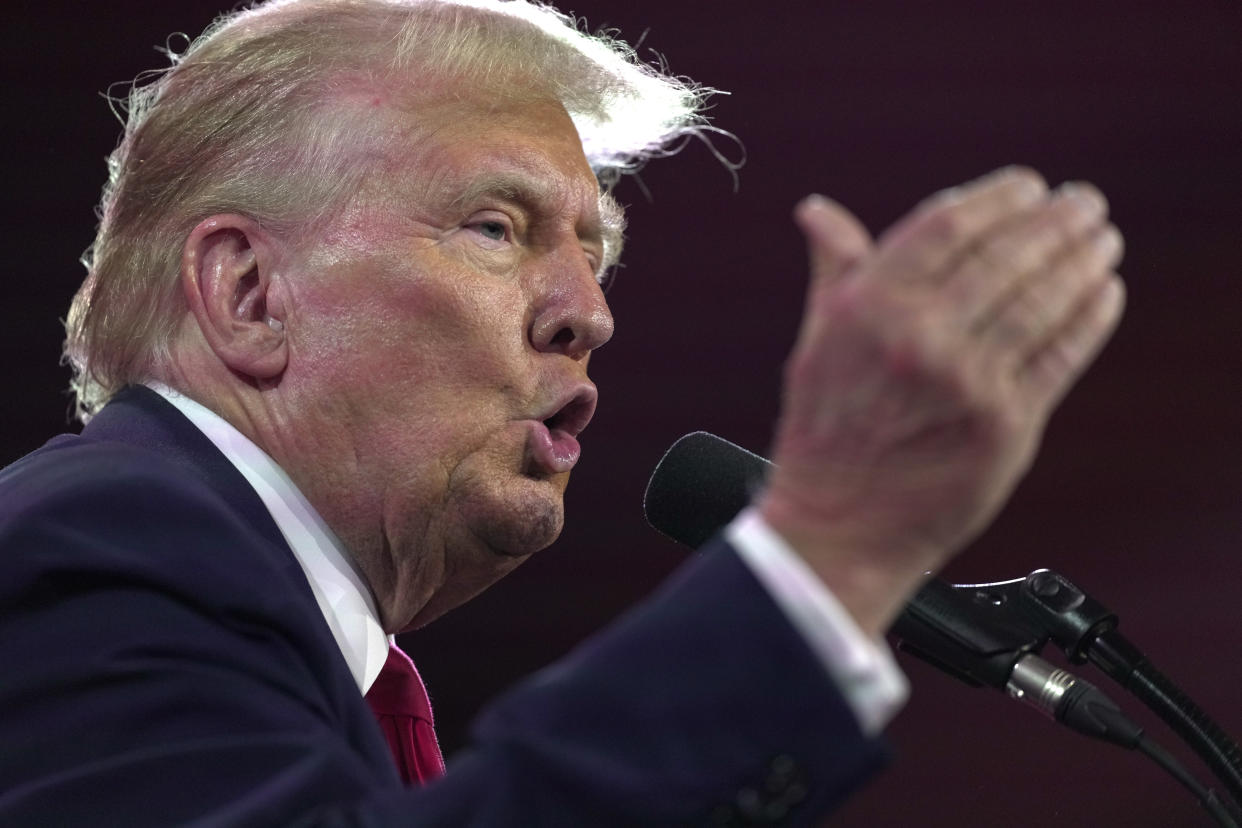Judge rejects Trump’s claims that FBI misled court in Mar-a-Lago search warrant

- Oops!Something went wrong.Please try again later.
- Oops!Something went wrong.Please try again later.
- Oops!Something went wrong.Please try again later.
U.S. District Judge Aileen Cannon on Thursday swept aside former President Donald Trump’s claims that FBI officials misled the court to obtain permission to search his Mar-a-Lago estate as part of an investigation into mishandling of national security secrets.
However, the judge coupled that ruling with a decision that is likely to further drag out the already protracted proceedings in the criminal case charging Trump with hoarding classified documents at his Florida home and obstructing the federal probe into the matter.
In an 11-page ruling, Cannon said Trump’s contention that the FBI misrepresented facts to a federal magistrate judge in order to secure the search warrant were largely meritless.
On the campaign trail and on social media, Trump has repeatedly referred to the August 2022 search as “illegal.” And at a hearing before Cannon in Fort Pierce, Florida, on Tuesday, Trump’s lawyers argued the FBI omitted key information from its search warrant application that might have affected the outcome.
But the Trump-appointed judge concluded that none of that information would have made a difference.
“[N]one of the omitted information — even if added to the affidavit in support of the warrant — would have defeated a finding of probable cause” to search Trump’s home, Cannon wrote.
Cannon’s ruling continues her pattern of siding with special counsel Jack Smith on fundamental questions about the case against Trump while sharply critiquing prosecutors nonetheless and leaving open the prospect that she will later back some of Trump’s myriad efforts to dismiss the case.
Despite rejecting Trump’s claims about the facts in the search warrant, Cannon agreed to schedule an evidentiary hearing on two of Trump’s other efforts to toss key pieces of prosecutors’ case.
In one of them, Trump is asking Cannon to reverse a decision by the federal judge in Washington, D.C., who oversaw the initial grand jury proceedings in the case. Last year, U.S. District Judge Beryl Howell permitted prosecutors to obtain evidence and testimony from Trump’s attorney Evan Corcoran that has become a crucial part of the case. Howell ruled that Corcoran’s information was not protected by attorney-client privilege because it likely constituted evidence of a crime. Cannon said it was her “obligation” to revisit Howell’s determination on that issue.
Cannon also said Trump can call witnesses and introduce other evidence to try to establish that the search warrant issued by a federal magistrate judge in Florida didn’t describe clearly enough what the FBI was permitted to seize.
Prosecutors had expressed concern that holding an evidentiary hearing on these issues would result in a “mini-trial” that would subject key trial witnesses to cross-examination before the case goes to a jury.
“There is a difference between a resource-wasting and delay-producing ‘mini-trial,’ on the one hand,” Cannon wrote, “and an evidentiary hearing geared to adjudicating the contested factual and legal issues.”
Holding an evidentiary hearing, which Cannon said she plans to schedule shortly, will also take time. The case against Trump was set to go to trial on May 20, but both sides said some delay was needed. Cannon scuttled the May trial date but has not set another. It seems highly doubtful on the current pace that the classified-documents case will be ready to go before a jury before the November election.
Trump’s calendar is also beginning to get thick with political and legal obligations as the 2024 election draws near. He will be in New York on July 11 for sentencing following his conviction on state charges that he falsified business records to conceal a politically explosive affair with porn star Stormy Daniels. The following week, he will take the stage at the Republican National Convention to accept the party’s presidential nomination.

